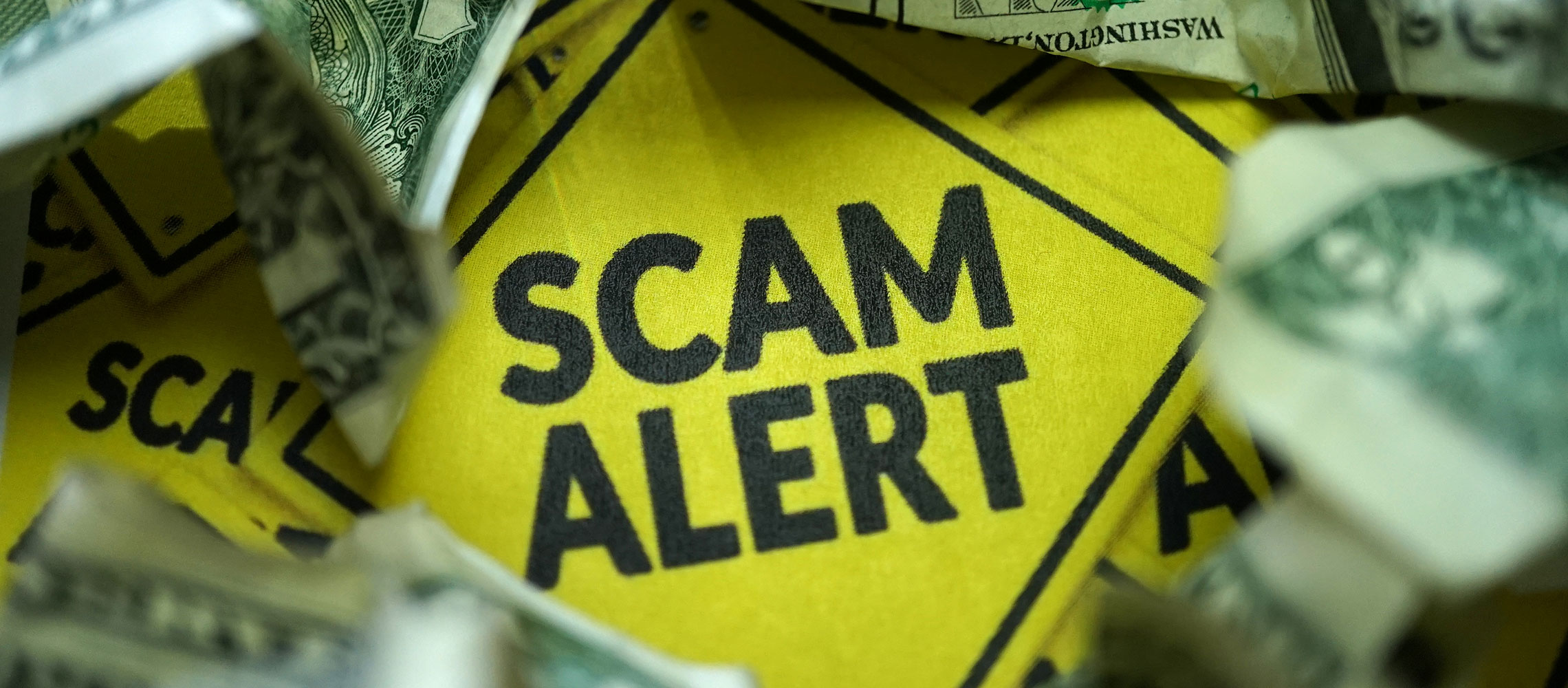Keep Your Money Safe by Watching Out for These COVID-19 Scams
Reading time: 5 Minutes
May 7th, 2020
Scammers often take advantage of times of crisis, playing on people's fears and concerns in order to make a quick buck. Government agencies, including the FBI, have issued a number of warnings to consumers to be on the lookout for an increased level of schemes relating to COVID-19. We've already shared some of the most common COVID-19 scams to watch out for. Here are some additional scams you need to know about.
Fake Job Offers
The scam: These scammers prey on people's desperation for work. Job scams may take the form of fake listings on popular job boards, social media or ads for job placement services. When you apply for a job, scammers may ask you to pay for training materials or to get certified. Or they may ask for your credit card or bank account information. They'll say it's so they can set you up for direct deposit, but they'll actually use it to commit account takeover fraud.
What you can do: Start by looking for jobs on legitimate job boards, and checking the Better Business Bureau or the state Department of Commerce and Consumer Affairs for complaints. If you're working with a job placement agency, get all details in writing, including who pays for their services, and read your contract closely. And be skeptical of any situation that requires you to pay money before earning money.
Money Mule Scams
The scam: You might think of a “mule" as someone who helps move drugs or stolen goods, but you can get tricked into serving as a mule without leaving your home. With money mule scams, you may get sucked in by a fake job posting or someone you meet online. The offer seems simple: accept a transfer of money into your account, and then transfer it on—keeping a share for yourself. But the money may be from drug trafficking or fraud, and the scheme is a classic form of money laundering. By helping cover up the money's source, you could face criminal charges, and if your bank accounts are flagged, they may be frozen, locking you away from even your legitimate funds.
What you can do: Even if you're desperate for cash, remember that getting involved in an illegal activity isn't worth it. Only send financial details to trusted sources, and don't accept job offers that ask you to provide banking information so they can funnel money through your account.
Fake Vaccines and Cures
The scam: Obviously, many people are desperate for a cure or vaccine for COVID-19, especially those at high risk. This has led scammers to offer an array of fraudulent products that claim to prevent or treat coronavirus. And, with a shortage of available testing, some are selling fake test kits. Scammers may be touting these products online or even going door to door. Of course, none of these products actually work.
What you can do: Remember that scientists have not yet discovered a cure or vaccine for COVID-19, and the only way to get tested is through a medical provider. Be skeptical of products that claim otherwise. Contact your doctor if you think you're experiencing symptoms of coronavirus and follow their advice. And, for your own health and safety, don't answer the door if a stranger comes to your home trying to sell treatments or testing. Warn neighbors and contact the police.
Fraudulent Charity Fundraisers
The scam: These scams prey on the empathy of people who want to help out during the crisis. Charity scammers may set up a fake website, send out phony emails or claim to be calling from a charity that sounds real. They can also create a fake caller-ID (called spoofing) so they appear to be calling from a legitimate charity.
What you can do: Take the time to research a charity before you make a donation. Look up local charities on the Hawaii Attorney General's Office website. Never let someone rush you into donating, and never donate by gift card or wire transfer—a common ploy used by scammers.
Pyramid Schemes
The scam: Pyramid schemes can be attractive to people who are desperate for money after getting furloughed or laid off. With these scams, instead of selling a specific product or service, you get paid for recruiting more and more people to the business or group. Often you have to pay money at the beginning, or make more payments to continue participating. A recent version of this old scam is called the “Blessing Loom," where people are promised an $800 payout within days. In reality, few people may get their money back.
What you can do: Be skeptical of any money-making “opportunities" that require you to pay in or recruit others, especially if there's no clear product or service being sold.
Protect Yourself
Scammers may try to take advantage of people's fear, desperation, and goodwill during this crisis, but you don't have to let them have the upper hand. By staying informed, asking questions, and using common sense, you can protect your money and information and stay financially safe.
You're about to exit BOH.com
Links to other sites are provided as a service to you by Bank of Hawaii. These other sites are neither owned nor maintained by Bank of Hawaii. Bank of Hawaii shall not be responsible for the content and/or accuracy of any information contained in these other sites or for the personal or credit card information you provide to these sites.





